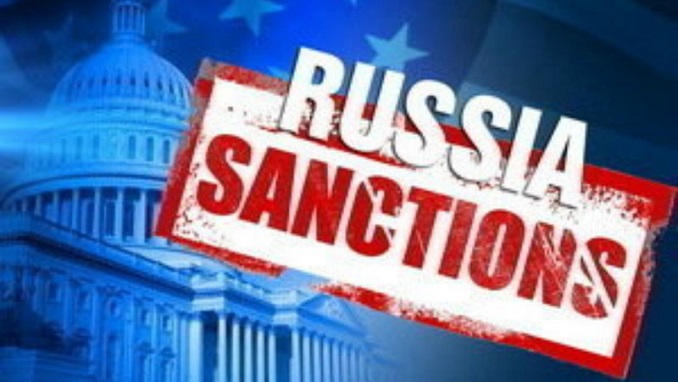The Russian press is still preoccupied with Moscow’s response to Washington’s sanctions imposed earlier this month. Over 300 legislators have joined the initiative to slap countersanctions on the U.S. signing the bill initiated by State Duma (lower house of parliament) speaker Vyacheslav Volodin and leaders of all four factions late last week.
Volodin said on Monday that that first reading in the upper house is scheduled for May 15 as it is necessary to get experts and businessmen involved in the discussion. Andrei Isayev, first deputy head of the United Russia faction, told Kommersant that major work on the text of the draft law was launched shortly after PM Dmitry Medvedev’s report to the Duma on April 11.
A source in the upper house of the parliament told the newspaper that the legislative initiative was put forward right after Washington expanded the blacklist of Russian businessmen and companies a week ago. He added that feedback from the government and pertinent agencies is expected.
The bill submitted to the State Duma on April 13 lays out restrictions on the United States and its allies. It authorizes the government to levy bans on imports of farming products, software, tobacco, alcohol and certain types of pharmaceuticals. A roundtable will be summoned on May 3 to discuss details.
According to MP Sergey Zhigarev, the forum invited businessmen, the government, the presidential administration, and representatives of all companies currently sanctioned. Zhigarev heads the lower house’s Committee for Economic Policy. He told Vedomosti that since the bill is not prohibitive, but substitutive, all related decisions should be well-grounded. The draft law took some ministries by surprise, one lawmaker told the paper: “The work will unveil how much they depend on imports, and what budget funds have been shelled out all this time.”
Meanwhile, Moscow is considering actions to respond to possible new Western sanctions against its state debt and disconnection from SWIFT, RBC reported citing two federal officials. A lockout from the global financial messaging system is feared to cause a collapse of the banking system and a suspension external accounts, particularly related to gas supplies, one of them said.
A source close to the Kremlin said that blocking sanctions against Russia’s two biggest lenders – Sberbank and VTB – and retaliatory measures are also on the agenda. Putting public companies on a so-called SDN (Specially Designated Nationals) list is considered to be a last-ditch means, with the potential consequences already experienced by Russia’s Rusal last week as its shares plunged, sending international investors into a self-off mode.












